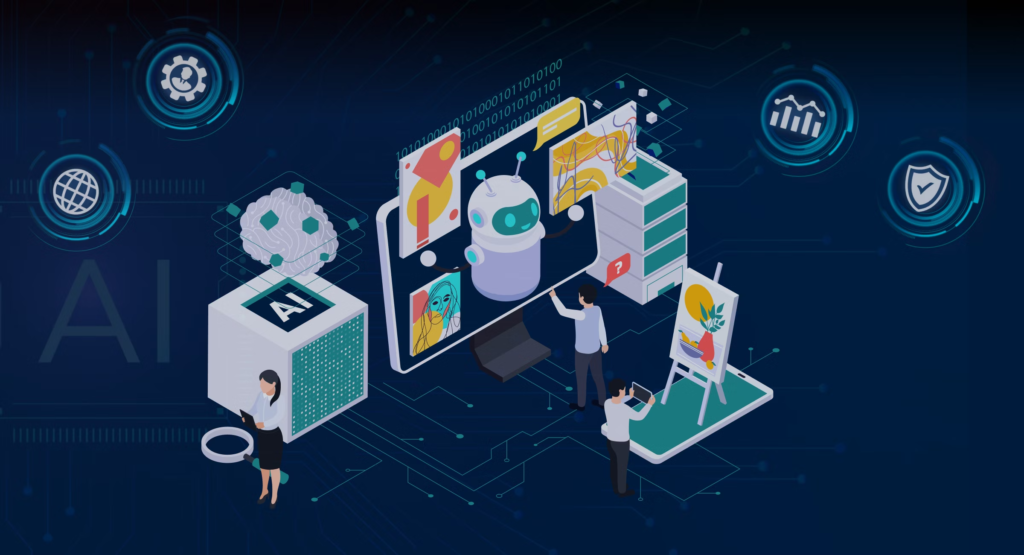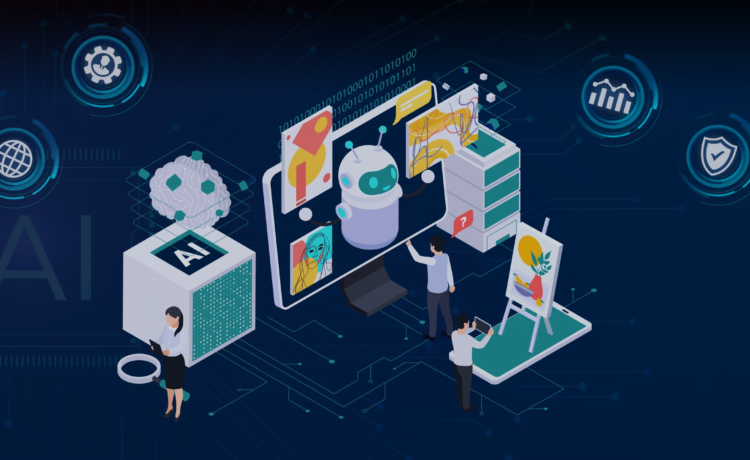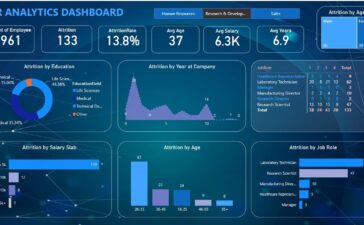Here’s a condensed and simplified overview of how AI benefits businesses:
How AI Benefits Businesses
Artificial Intelligence (AI) is transforming the way businesses operate. Here’s how AI can be a game-changer:
1. Automating Routine Tasks
- Document Processing: AI can extract and organize data from documents, eliminating manual entry.
- Customer Service: Chatbots handle simple customer queries, letting human agents focus on complex issues.
- Lead Qualification: AI identifies promising leads, allowing sales teams to prioritize their efforts.
2. Deriving Actionable Insights
- Market Trends: AI analyzes data to identify trends and predict future demands.
- Predictive Analytics: AI forecasts future outcomes based on historical data, aiding in strategic planning.
- Anomaly Detection: AI spots unusual patterns that might indicate fraud or equipment failure.
3. Enhancing Customer Experiences
- Personalized Recommendations: AI suggests products based on customer behavior, increasing satisfaction.
- Predictive Analytics: AI anticipates customer needs and prevents churn.
- Conversational Interfaces: AI chatbots provide instant responses, improving engagement.
Core AI Concepts
1. Artificial Intelligence (AI): Technology that enables machines to perform tasks that usually require human intelligence.
2. Machine Learning: A subset of AI where systems learn from data and improve over time.
3. Deep Learning: A type of machine learning that uses neural networks to analyze data more deeply.
4. Neural Networks: Systems modeled after the human brain that help in pattern recognition and data analysis.
Implementing AI in Your Organization
1. Determine AI Maturity
- Data Infrastructure: Ensure your data is organized and accessible.
- AI Talent: Build a team with the right skills and knowledge.
- Leadership Commitment: Secure support from top management.
- Ethical AI Governance: Establish guidelines for fair and safe AI use.
2. Leverage AI Platforms and Services
- Pre-Built AI Cloud Platforms: Use services like Azure AI or AWS SageMaker to integrate AI easily.
- AI Software Development Kits (SDKs): Accelerate development with pre-built AI tools.
- AutoML and MLOps: Automate and manage AI tasks efficiently.
Overcoming AI Adoption Challenges
1. Managing Implementation Risks
- Leadership Buy-In: Ensure top-level support.
- Iterative Approach: Start small and scale up.
- Integration: Choose the best way to incorporate AI into existing systems.
- Upskill Teams: Train employees or hire AI experts.
- Co-Create Solutions: Work with different business units to tailor AI solutions.
2. Ensuring Responsible AI Practices
- Fairness: Avoid bias in AI systems.
- Accountability: Define who oversees AI operations.
- Compliance: Adhere to data and AI regulations.
- Safety: Monitor AI to prevent errors.
- Transparency: Be open about AI methods and data use.
- Ethics Review Boards: Establish a team to review AI practices.
The Future of AI in Business
Key Takeaways
- AI enhances efficiency, decision-making, and customer satisfaction.
What’s on the Horizon
- Causal Learning: AI that understands why things happen.
- Hybrid Models: Combining different AI approaches.
- Multi-Modal Learning: AI that processes text, images, and speech together.
AI is not about replacing jobs but augmenting them. Staying updated on AI developments helps businesses remain competitive and innovative.





